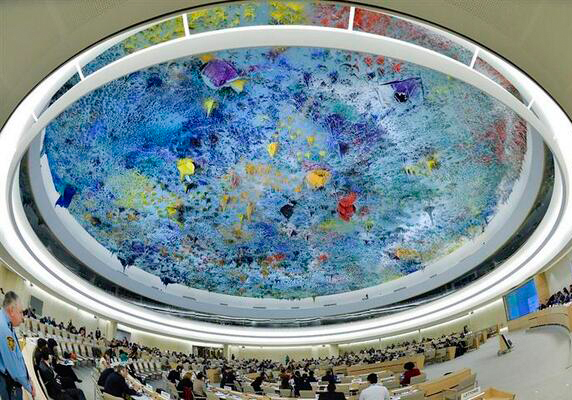
Jul 5, 2018 | Advocacy, Non-legal submissions
The ICJ today joined other NGOs in urging open discussion and debate about countries at the UN Human Rights Council in Geneva, including in discussions of cooperation, despite attempts by some States to interrupt and suppress debate.
The statement was delivered in a General Debate on items 2 and 10 of the Council, by Asian Forum for Human Rights and Development (FORUM-ASIA) on behalf of the group of NGOs. It read as follows:
“Thank you, Mr. President. While we appreciate the importance of technical cooperation, we wish to stress that a debate on technical cooperation will be incomplete if it does not address non-cooperation and country situations that have worsened despite technical cooperation. We are alarmed by efforts to restrict discussion on such situations by some states under Agenda Item 10, including for instance by (the Bolivarian Republic of) Venezuela earlier today.
While we recognise that all delegations including NGOs are required to speak on the topic under discussion, we are deeply concerned when NGOs making relevant statements are interrupted and not given a chance to explain the relevance of their statement, and in some cases are even prevented from finishing the statement. This has happened even when an NGO is speaking specifically on concerns addressed by UN reports listed for discussion in the relevant debate. Statements on Cambodia during the March session of the Council are recent examples.
The concept of international cooperation should never be invoked to shut down any criticism of human rights situations in individual countries. Cooperation cannot succeed without accountability. To be effective, debates on technical assistance and capacity building must be open to frank discussion of the true gravity, character and extent of on-going violations in the country in question, as well as the impact or lack of impact of any assistance already undertaken.
Thank You”
Asian Forum for Human Rights and Development (FORUM-ASIA)
Cairo Institute for Human Rights Studies
Conectas Direitos Humanos
Freedom House
Human Rights House Foundation
Human Rights Watch
International Commission of Jurists
International Humanist and Ethical Union (IHEU)
International Service for Human Rights (ISHR)
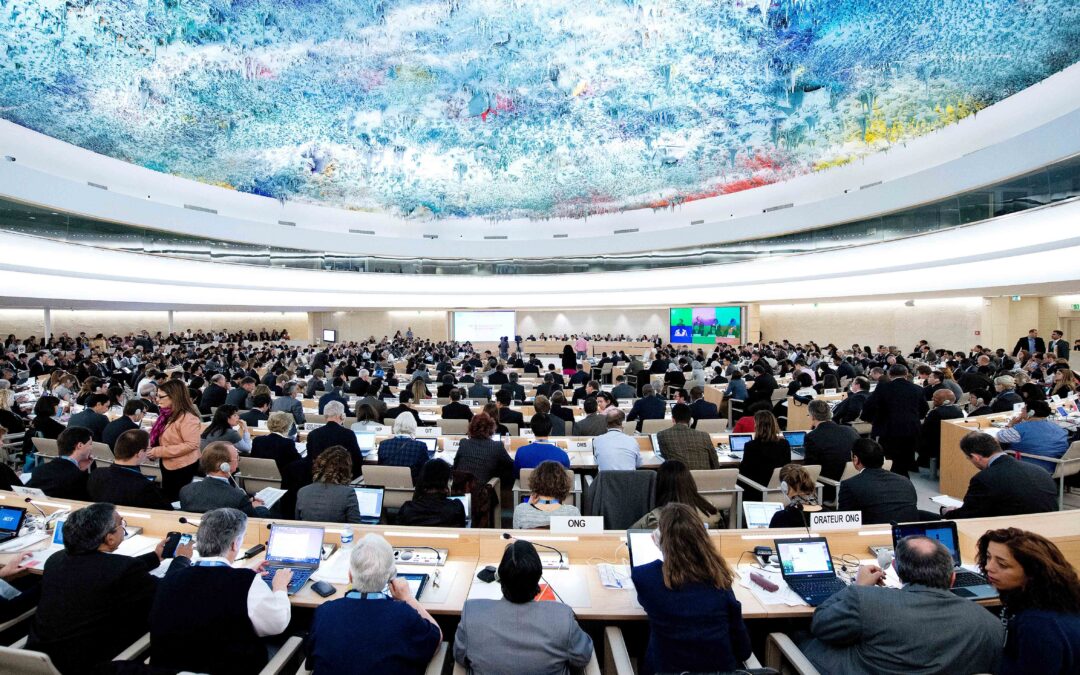
Jun 27, 2018 | Advocacy, Non-legal submissions
At the UN, the ICJ today highlighted the deteriorating situation for human rights and rule of law in Cambodia.
The statement came during a general debate at the UN Human Rights Council, on human rights situations that require the Council’s attention. It read as follows:
“Mr. President,
A State rapidly moving in an authoritarian direction, with widespread and deepening repression of human rights, whose civil society cannot even speak openly at this Council for fear of reprisals, should be discussed as a situation requiring the Council’s attention under item 4, and not merely a matter of technical assistance and capacity-building under item 10. An urgent example is Cambodia.
The continuing human rights and rule of law crisis orchestrated by the ruling party has deeply compromised national elections scheduled for 29 July.
Authorities continue to abuse the legal system to repress civil society, independent media, the political opposition, and increasingly, ordinary individuals.
The Government has threatened prosecution of any person calling for a boycott of the highly compromised elections. It has established a working group to monitor and control all information on websites and social media. Ordinary people are being arrested, charged and detained under a new lèse-majesté law.
Repression of civil society and independent media continues – with the sale of the last independent English-language newspaper to an owner allegedly linked to the Government, and judicial investigation of civil society members in criminal proceedings against detained opposition leader, Kem Sokha.
The Council and its members must respond more effectively to the ongoing crisis in Cambodia, particularly in the few weeks remaining before the election.
Thank you, Mr. President.”
The delegation of the Cambodian government exercised its right of reply at the end of the debate. Its statement is available here: UN_HRC38-Cambodia-Reply-2018
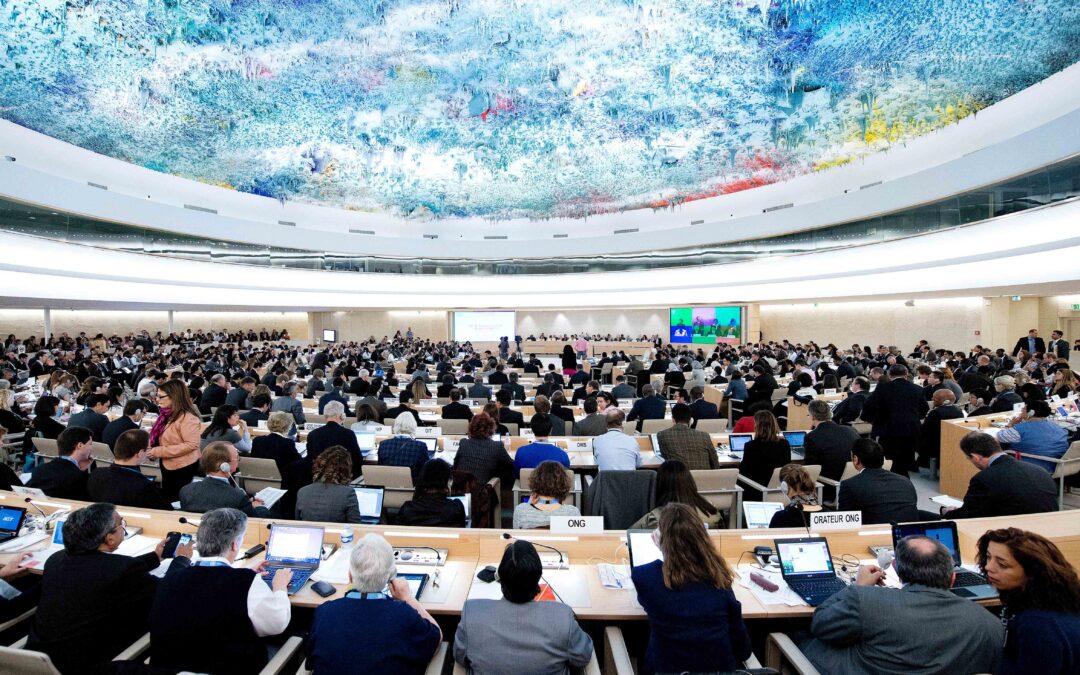
Jun 20, 2018 | Advocacy, Non-legal submissions
At the UN the ICJ today addressed abuse of laws in Southeast Asia to restrict freedom of expression.The statement was made in an interactive dialogue with the UN Special Rapporteur on Freedom of Expression, at the UN Human Rights Council in Geneva. It read as follows:
“The ICJ welcomes the report of the Special Rapporteur on Freedom of Expression (A/HRC/38/35), on online expression. Such concerns are reflected in the continued weaponization of laws to criminalize and unduly restrict freedom of expression in Southeast Asia. Increasingly, laws are misused to harass and intimidate civil society, journalists, politicians and ordinary individuals.
For example, in Cambodia, three persons were arrested – two charged and detained in May, and one reportedly arrested this past weekend – for sharing content on Facebook in alleged violation of a recent lèse majesté law. Another man was similarly detained, and a woman extradited from Thailand to Cambodia and imprisoned, for Facebook posts deemed critical of the government. An inter-ministerial order signed last month now allows government agencies to monitor and censor information on websites and social media.
Another example is Vietnam, where as well-known bloggers remain in jail, last week lawmakers adopted a cybersecurity law that will compel companies to store users’ data in-country, pass personal data to government authorities, and censor information online when directed to do so by the government.
A further example is Thailand, where this year alone at least 132 people were charged for “illegal assembly” after protesting for elections to be held – 27 were also charged with a sedition-like offence carrying a maximum penalty of seven years’ imprisonment. Last week, arrest warrants were reportedly issued alleging dissemination of false information on Facebook, which may lead to charges under the Computer Crimes Act carrying a maximum penalty of five years’ imprisonment, despite international standards precluding imprisonment as an appropriate penalty.
The ICJ urges all States to implement the recommendations in the report of the Special Rapporteur, and to ensure the right to freedom of expression by revoking or amending all laws, orders, policies or other actions which unjustifiably restrict this fundamental freedom.”
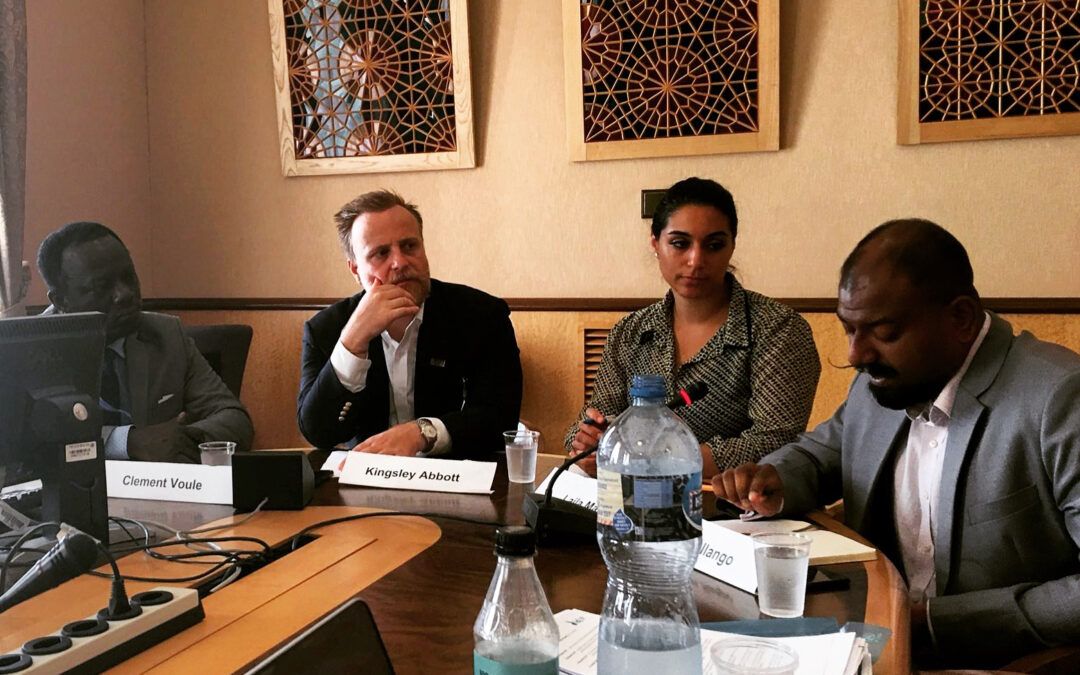
Jun 20, 2018 | Advocacy, News
Today, the ICJ held a joint side event at the 38th Regular Session of the Human Rights Council on freedoms of expression, association and assembly in the context of elections in Asia.
The event was co-organized by the ICJ, in collaboration with Forum Asia and Human Rights Watch.
Kingsley Abbott, ICJ Senior Legal Adviser, spoke at the event, highlighting the regression in human rights and the rule of law in the Southeast Asian region, focusing on Thailand and Cambodia in the lead up to elections.
He identified recent developments in the misuse of the law to violate human rights in Thailand and Cambodia, and called for a necessary push back against the weaponization of the law and the misuse of the principle of the ‘rule of law’ in both countries.
Other speakers at the event included Iniyan Ilango, from Forum Asia, who spoke about fundamental freedoms in the context of elections in Bangladesh and the Maldives and other countries in Asia; and UN Special Rapporteur on the rights to freedom of peaceful assembly and of association, Clément Nyaletsossi Voule, who addressed the event more broadly on the protection and promotion of freedom of assembly and association in the context of elections.
The event was moderated by by Laila Matar, Deputy Director, United Nations, Human Rights Watch.
Contact
Kingsley Abbott, Senior Legal Adviser, ICJ Asia Pacific Regional Office, t: +66 94 470 1345, e: kingsley.abbott(a)icj.org
Thailand-Cambodia-Side-event-HRC38-Freedoms-of-Expression-Advocacy-2018-ENG (full speech in PDF)
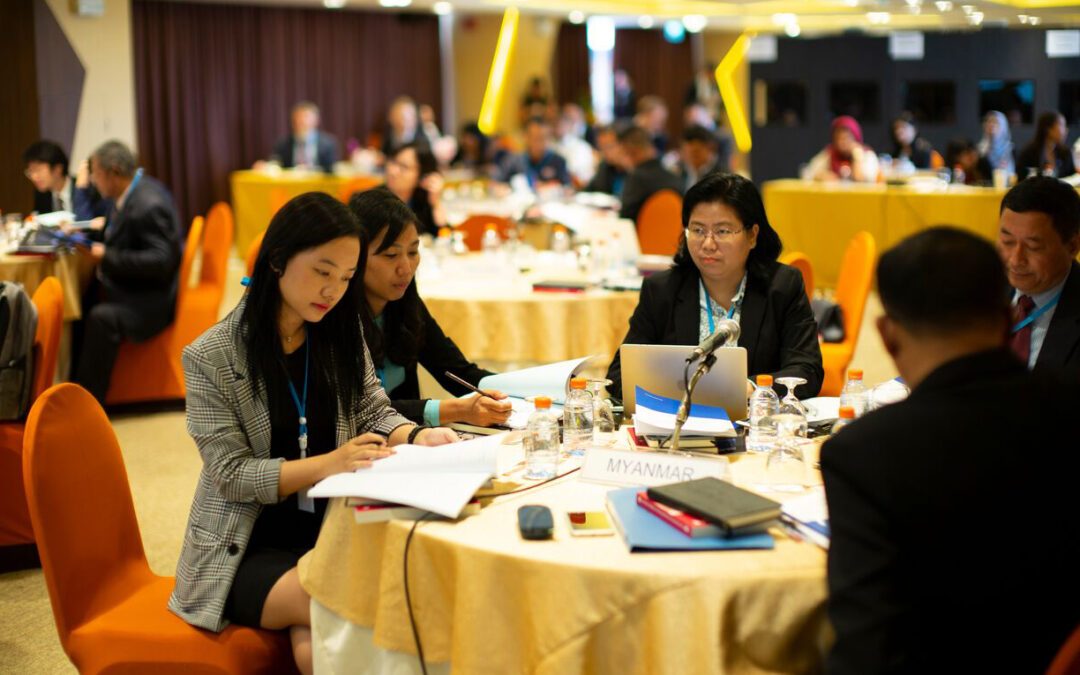
Jun 1, 2018 | Events, News
Between 30 May and 1 June 2018, the ICJ co-hosted a workshop for authorities from Thailand, Cambodia, Myanmar and Nepal on the investigation of potentially unlawful deaths and enforced disappearance in accordance with international human rights law and standards.
The workshop was co-hosted with Thailand’s Ministry of Justice and the United Nations Office of the High Commissioner for Human Rights (OHCHR) and took place as part of the ICJ’s Global Redress and Accountability Initiative, which has as one of its core objectives, “increasing the knowledge and capacity of lawyers, prosecutors and investigators to deal with challenges of impunity and access to redress.”
The participants included more than 30 criminal investigators, forensic doctors, forensic scientists, prosecutors, police trainers, senior judges and representatives of the Cambodian Ministry of Justice, the Myanmar Attorney General’s Office, the Thai Ministry of Justice and the Nepal Office of the Attorney General.
The event commenced with opening remarks by the Ambassador of Finland, Ms. Satu Suikkari-Kleven; the Ambassador of Germany, Mr. Peter Prügel; Adviser on the Promotion of the Rights and Freedom from Thailand’s Ministry of Justice, Mr. Pitaya Jinawat; and the Asia Director of the ICJ, Frederick Rawski.
Alex Conte, Senior Law and Policy Advisor, ICJ Global Redress and Accountability Initiative, gave an overview of the international human rights legal framework that applies to the investigation of unlawful deaths and enforced disappearance.
Kingsley Abbott, Senior Legal Adviser at the ICJ, then provided an overview of the revised Minnesota Protocol on the Investigation of Potentially Unlawful Death (2016), which was launched in Thailand on 25 May 2017 and which formed the core of the materials used at the workshop.
Other speakers included Ms. Jennifer Prestholdt, Deputy Director, the Advocates for Human Rights, who presented on the Rights of Victims and Families and witness interviews; Mr. Glenn Williams, Detective Inspector, Field Crime Manager, New Zealand Police National Headquarters, who presented on the investigation process including crime scene management;
Ms. Shivani Verma and Ms. Pratubjit Neelapaijit, of the Office of the High Commissioner for Human Rights who presented on Witness Protection; and Dr. Pornthip Rojanasunan, Adviser, Central Institute of Forensic Science (CIFS)/Member of the Advisory Panel who presented on forensic pathology.
This workshop followed two workshops the ICJ co-hosted between 5 to 8 December 2017 in Thailand on the investigation of potentially unlawful deaths and enforced disappearance for lawyers from Thailand and India, academics and the Thai authorities.
Contact
Alex Conte, ICJ Global Redress and Accountability Initiative, t: +41 79 957 2733; e: alex.conte(a)icj.org
Kingsley Abbott, Senior International Legal Adviser, ICJ Asia Pacific Regional Office, t: +66 94 470 1345, e: kingsley.abbott(a)icj.org









